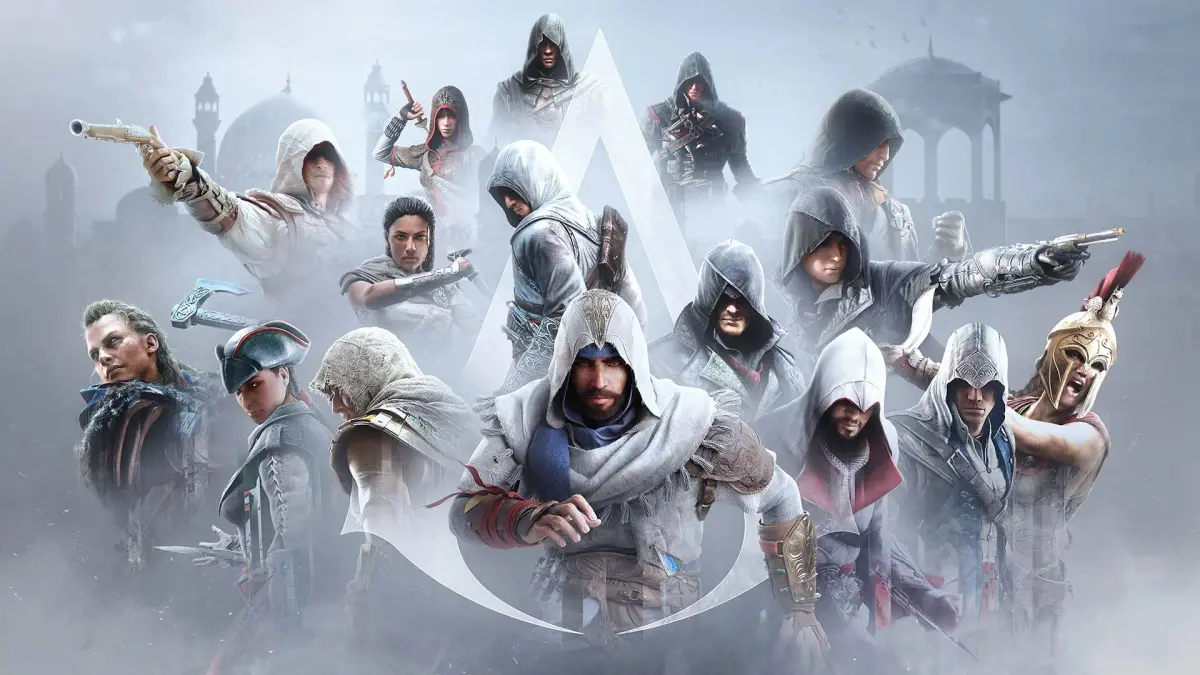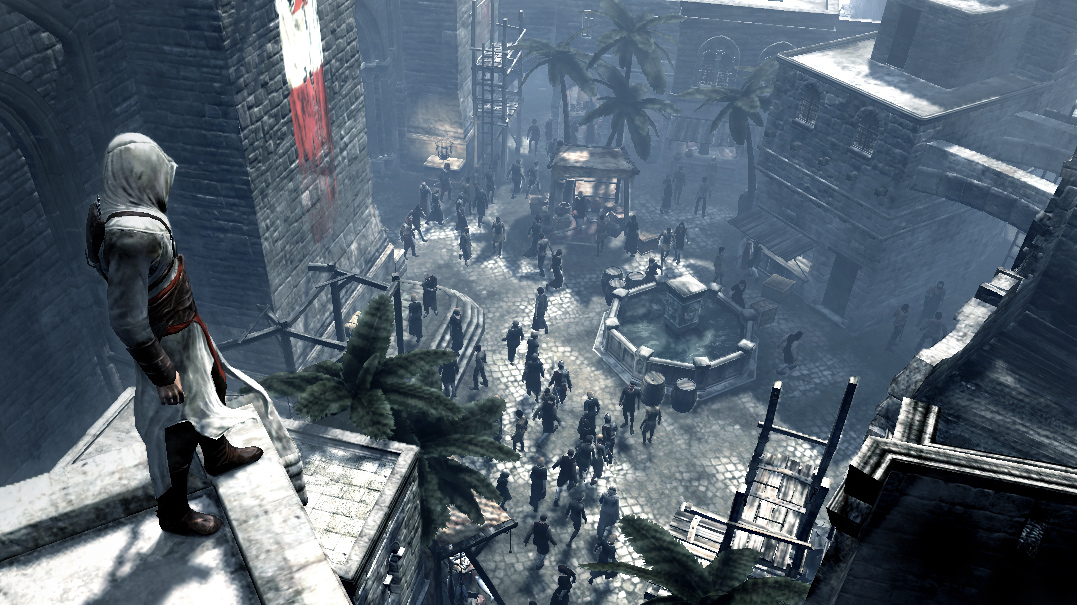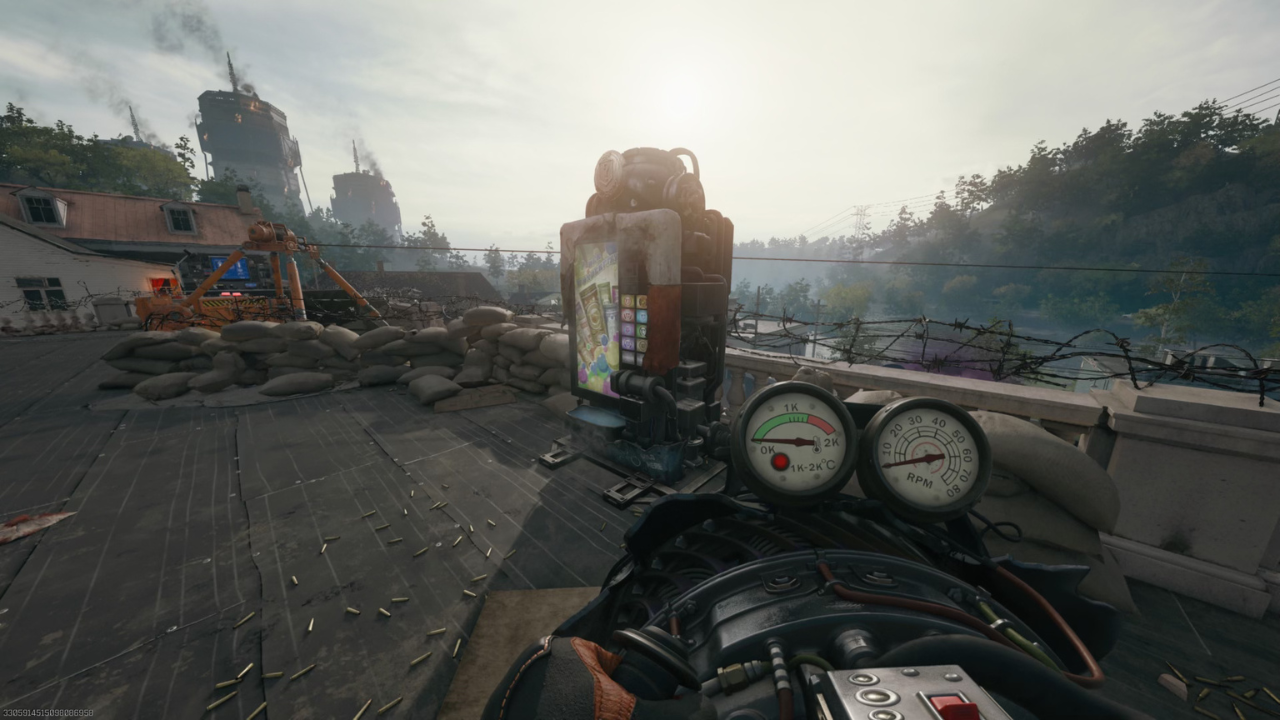The Assassin’s Creed series is now over a decade and a half old, with 13 mainline entries and numerous spin-offs. With that much history to explore and a lot to say about the virtues and issues of each individual entry — not to mention that the series has had a few soft reboots — it can be hard to know where to start. And the truth is that choice will be determined by what you’re looking for. So, with Assassin’s Creed Mirage on the way, I’m going to lay out a few options for which game in the Assassin’s Creed series you should play first.
Why You Should Start With 2007’s Assassin’s Creed
I’m a big advocate for starting from the first entry in any series to make sure you get everything. Based purely on that, my advice is to nab yourself a copy of 2007’s Assassin’s Creed and settle in for several hundred hours of stabby parkour action as you work your way through the various evolutions that the series has taken over the years.
It’s absolutely the most comprehensive approach to diving in, and you’ll find an intriguing story in a historical fiction setting that isn’t explored all that often. The game’s recreation of the Holy Land is still gorgeous even all these years later, and it lays the foundation of everything that follows, even if many of the sci-fi elements don’t really flourish until later entries.
Related: Assassin’s Creed Mirage Is One of the Best Ubisoft Games I’ve Played in Years
That said, I have reservations about recommending you play Assassin’s Creed first because it felt repetitive even on its release, and that’s only become more pronounced over the years. The game design left much to be desired, and it’s well established that the series really came into its own with 2009’s Assassin’s Creed II. Because of that, the first sequel is another valid starting point, but not one I’d suggest.
Why You Should Start With 2013’s Assassin’s Creed IV: Black Flag
Instead, my advice would be to skip straight ahead to Assassin’s Creed IV: Black Flag, which is still widely regarded as the best the series has to offer. It’s the first of the soft reboots that the series has undergone, after Assassin’s Creed III capped the modern-day storyline featuring Desmond Miles’ mission to save the world from an apocalypse.
It massively expands on the naval segments from its predecessor, making for a grand, swashbuckling adventure quite unlike anything the series had seen before or since. The open-world formula was refined to create a stronger sense of player agency over what they could do, which is emphasized by having a vast sea to explore.
Related: Can Ubisoft Make Assassin’s Creed Interesting Again? – Slightly Something Else
The approach was revisited with the following year’s Assassin’s Creed Rogue, but the series simultaneously moved back towards land-based gameplay with the eighth-generation exclusive Assassin’s Creed Unity. However, the unique expressiveness of Black Flag wasn’t forgotten, instead being spun off into a new IP, Skull & Bones, which, sadly, we’re still waiting for.
Why You Should Start With 2017’s Assassin’s Creed Origins
After a decade of incremental additions and changes, Assassin’s Creed Origins was a complete overhaul of everything that had come before. Not only did it represent a soft reboot of both the modern-day and historical storylines, it also introduced an entirely new gameplay and design ethos that formed the framework of the next few years — right up until 2023’s Assassin’s Creed Mirage, which is a proud callback to the very first game.
The game returns to a named protagonist for the modern-day storyline for the first time since Assassin’s Creed III, this time casting players as Abstergo researcher Layla Hassan, who also becomes caught up between the war between Assassins and Templars and the vague threat of a new apocalypse. Meanwhile, the historical storyline is set more than a thousand years before the first game and tells of the founding of The Hidden Ones, the precursors to The Assassin Order.
Meanwhile, the gameplay goes full ARPG, complete with skill trees, even more extensive side content than ever before, level gating, and a free-form combat system that moved away from the scripted fight style of the earlier games. It’s a very different game from its predecessors and feels much more modern, so it’s definitely the best starting point if you don’t want to put up with dated mechanics and don’t care about a decade of increasingly convoluted lore.
Those are my picks for the best Assassin’s Creed games to play first and start your historical fantasy journey, and I’ve chosen them simply because they’re the watershed moments. It’s not a prescriptive list, though. I might think you have rocks in your head for wanting to start with Assassin’s Creed: Revelations, but there’s absolutely nothing to stop you from doing just that. It’s only going to get more difficult from here, though, as the series is splintering into different directions to cater for different interests.









Published: Sep 27, 2023 09:33 am